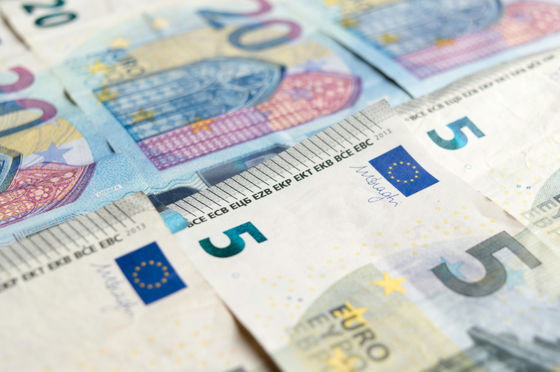Many people are skeptical of the central bank digital currency 'digital euro' that is scheduled to be introduced in the second half of 2025, with some saying they 'cannot imagine using it.'

The European Union is preparing to introduce a central bank digital currency called a ' digital euro ,' but many in Germany, an economic powerhouse, are skeptical due to security concerns and a preference for using cash.
Digital Euro Has Germans Fretting Their Money Won't Be Secure - Bloomberg
Germans Prefer Carrying Cash as CBDC Decision Looms
https://www.pymnts.com/cbdc/2024/germans-prefer-carrying-cash-as-cbdc-decision-looms/
European Central Bank wants a digital euro, these four countries say 'no'
https://crypto.news/european-central-bank-wants-a-digital-euro-these-four-countries-say-no/
Digital euro faces skepticism in Germany over privacy concerns
https://cryptobriefing.com/german-digital-euro-skepticism/
A 'Central Bank Digital Currency' (CBDC) is a fiat-denominated digital currency issued as a liability of a central bank. The introduction of CBDCs is being considered around the world, with the Bahamas issuing the world's first CBDC in October 2020 , China and South Korea also conducting trial introductions, and the UK is expected to decide whether to introduce a 'digital pound' within the next two to three years.
The EU is also continuing to consider whether to introduce its own CBDC, the ' digital euro ,' with a decision expected to be made in late 2025. The EU's digital euro is planned to be issued by the European Central Bank (ECB), the central bank responsible for monetary policy for the 20 eurozone countries.
The ECB completed the research phase that began in October 2021 and has been moving into the preparation phase since November 2023, formulating rules, selecting platform and infrastructure developers, and conducting pilot tests. Regarding the digital euro, the ECB explained, 'As more and more people choose digital payments, we want to offer a central bank-issued digital currency with the same value as cash, guaranteed. That's the digital euro.'
As more and more people are choosing to pay digitally, we want to offer a digital form of central bank money with the same guaranteed value as cash.
— European Central Bank (@ecb) October 25, 2023
That's what a digital euro would be.
Why would it be so important for Europe? Find out more https://t.co/uNeB5sZtHa #digitaleuro pic.twitter.com/M7EMpWsTrQ
An ECB official explained to Bloomberg that the digital euro will have advanced security and privacy features. Specifically, encryption and hashing will ensure that digital euro transactions remain private. The ECB also explained that it will ensure that the digital euro is easy to use for seniors and new immigrants. In addition, ECB President Christine Lagarde stated that when the digital euro research phase was completed in October 2023, 'the digital euro will coexist with physical cash and transactions will be free (there will be no fees for transactions).'
However, Bloomberg reports that in Germany, the EU's largest economy, skepticism about the digital euro still exists, especially among the older generation. In a discussion with a local retiree group at Germany's central bank, the Bundesbank, some people said they were already losing control of their spending due to card and online payments, and some were worried that the introduction of CBDC would make Germany overly dependent on technology. Hans-Heinrich Kloppel, a local pensioner, told Bloomberg, 'I prefer to use cash in most cases, probably out of habit,' expressing a negative view of the digital euro. However, younger Germans seem to have a relatively open attitude toward the digital euro.
Bloomberg also reports that many countries, including Australia and Slovakia, prefer cash over digital payments, while some countries, such as the Netherlands, where digital payments are widespread, are open to a digital euro.
Evelyn Whitlocks, director of the Digital Euro Project, said , 'The introduction of a digital euro is likely, but it is not inevitable at this point,' emphasizing that the introduction has not been decided. The main reason for the introduction of a digital euro is to reduce 'Europe's reliance on non-European payment services.'

The EU is not the only country that is concerned about CBDCs. In the United States, right-wing politicians in particular are opposed to CBDCs, and former President Donald Trump has stated that he will fight against the introduction of CBDCs if he wins the 2024 US presidential election. 'This is a dangerous threat to freedom, and I want to prevent CBDCs from being brought to America. Such a currency would give the federal government absolute control over your money. They could take your money and you wouldn't even notice it was gone,' he said.
JUST IN: 🇺🇸 President Trump says Vivek Ramaswamy told him about the dangers of a CBDC and promises to never allow it if elected. pic.twitter.com/JKjAGY18F2
— Watcher.Guru (@WatcherGuru) January 23, 2024
Florida Governor Ron DeSantis has also voiced his opposition to CBDCs.
◆ Forum is currently open
A forum related to this article has been set up on the official GIGAZINE Discord server . Anyone can post freely, so please feel free to comment! If you do not have a Discord account, please refer to the account creation procedure explanation article to create an account!
• Discord | 'Do you think we need a digital yen?' | GIGAZINE
https://discord.com/channels/1037961069903216680/1275020297971699712
Related Posts:
in Note, Posted by logu_ii







